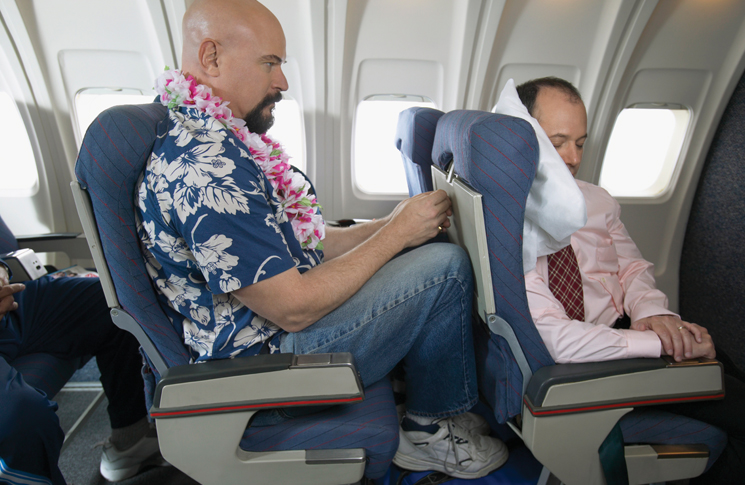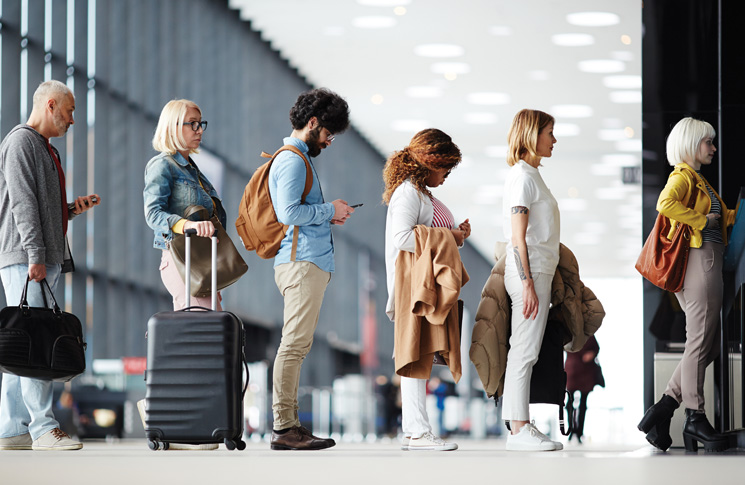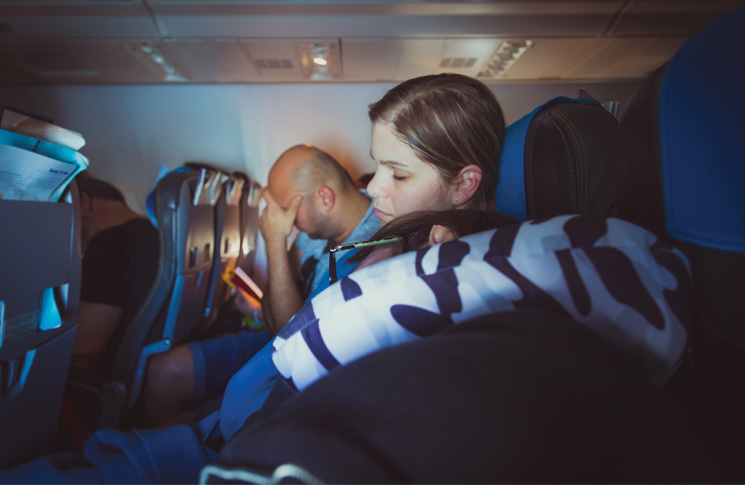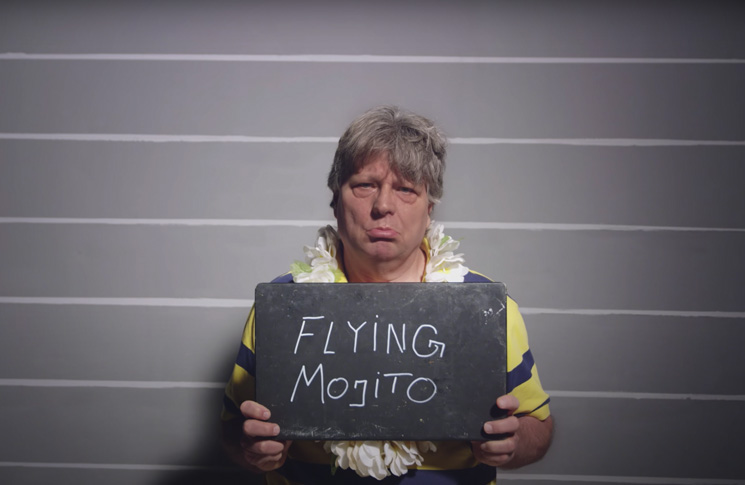What causes some passengers to behave badly and what is the flow-on effect for aviation safety?
By Pamela Tomlinson
We’ve all heard about them and some of us have had the unfortunate experience of having them on our flight.
Loud, obnoxious or drunk passengers do more than endanger the safety of passengers and crew—they have the potential to risk the safety of the flight. Cabin crew have the difficult task of subduing these passengers and flight crew are faced with the possibility of having to divert the aeroplane to offload them.
And right now, there’s a risk it could get worse due to the COVID-19 pandemic.
How widespread is the problem? The International Air Transport Association recorded 66,000 incidents of unruly behaviour between 2007 and 2017 and, in 2017 alone, one incident for every 1053 flights.
The association’s website says although unruly incidents are committed by a tiny number of passengers, they have a disproportionate impact—threatening safety, disrupting other passengers and crew and causing delays and diversions.
In 2019 the European Union Safety Agency created the ‘Not on my flight’ campaign to raise awareness of what constitutes bad behaviour and the statistics surrounding it.
The campaign highlights that 1000 flights per year in Europe had an unruly passenger, and 72 per cent used physical aggression against crew or other passengers. This resulted in an average of one flight a month having to make an emergency landing to offload the passenger.
This campaign is just one of many around the world helping to educate passengers on the consequences of behaving badly. These may include threatening the safety and security of an aircraft, its passengers and crew, the physical and mental harm to other passengers and crew, inconvenience to other passengers and operational disruption.
Jules Anderson, a Cabin Safety Inspector at CASA, says a number of behaviours can be identified as unruly.
‘An unruly passenger may be defined as someone who is acting in a disorderly or riotous manner on a flight,’ she says. ‘It could be someone who refuses to comply with crew member instructions or makes threats against the crew, damaging aircraft equipment or exhibiting physical aggression.
‘Unruly passengers may be under the influence of drugs or alcohol which manifests in extremely poor decision-making or destructive behaviour, and therefore they are less likely to understand the danger of such conduct and the resulting actions required to be taken by crew members, where the safety of flight is in jeopardy.
‘Over the years, there have been a number of incidents involving physical aggression toward crew members and passengers on Australian-registered aircraft. When an event like this occurs, crew need to formulate and execute a plan to physically restrain the unruly passenger and, following a briefing from the senior cabin crew member, the captain will decide whether to divert.’
Anderson says unruly passengers can be held civilly or criminally accountable for their actions depending on the seriousness of the event and the extent to which their actions threatened safety.
Aggressive, loud or obnoxious behaviour during check-in or in the departure area may lead to more significant problems onboard the aircraft.
‘These passengers may be met on arrival of the aircraft by airline representatives and police, and issued with a verbal or written warning,’ she says.
‘Airlines or police may refer to CASA any incidents that breached civil aviation legislation, which could lead to CASA issuing infringement notices. Alternatively, police may arrest or charge the passenger with an offence, which could result in a criminal conviction.’
An airline may also seek compensation where an aircraft was diverted due to unruly or disruptive behaviour, for costs such as fuel, accommodation or alternative flights.
Airline containment measures for the COVID-19 pandemic, such as masks and physical distancing requirements, mean there is the risk of passenger non-compliance leading to escalating conflict, Anderson says.
‘An increase in cases of unruly or disruptive passengers should be anticipated, either prior to departure or inflight,’ she says. ‘Some passengers may refuse to sit in their allocated seat or may accuse other passengers of not following the rules.
‘The residual effects of an event with an unruly passenger extend beyond cost and reputational issues, which also need to be managed by airlines.
‘Most people now have a mobile phone and increasingly we see unruly events recorded, making their way to various forms of media. In a recent high-profile incident, the crew member involved was subsequently cyber bullied when their identity was revealed on social media.
‘Consequently, crew members are potentially dealing with the mental health impacts of being verbally or physically abused, which can have a significant impact on their personal lives.’
To support crew members and ground operations personnel, Anderson says airlines can employ several strategies to manage unruly passengers and reduce the likelihood of an incident occurring.
‘Airlines have a responsibility for disruptive passenger behaviour that extends to ensuring training is developed for ground operations personnel and crew members,’ she says. ‘This training should be on prevention and management, including conflict de-escalation techniques and responsible service of alcohol.
‘Airlines should clearly communicate to passengers the consequences and sanctions of unruly behaviour.
‘Even though incidents where passengers exhibit unruly or disruptive behaviour often begin once onboard the aircraft or after take-off, early signs of a possible problem may arise before boarding.
‘Aggressive, loud or obnoxious behaviour during check-in or in the departure area may lead to more significant problems onboard the aircraft. Generally, behaviour that prevents ground operations personnel or crew members from performing or completing their tasks is a good indicator the situation may deteriorate and adversely affect the safety of the flight.
‘CASA recommends airlines update procedures and training to reflect the current environment and improve how staff are able to identify, prevent and diffuse potentially problematic situations.
‘It is also imperative these staff are informed of the duties and responsibilities of others on the team, particularly about the prevention and management of unruly or disruptive behaviour. This will result in consistent application of procedures and a less obtrusive outcome.
‘If the function of departure gate or check-in services is outsourced, the airline has an obligation to ensure staff performing these roles receive the required training to manage unruly or disruptive passengers and what constitutes interference with a crew member.
‘The ultimate objective of Civil Aviation Safety Regulations and the Aviation Transport Security Act is to prevent unruly or disruptive passengers from boarding the aircraft, thereby giving passengers and crew members a safe travelling and working environment.’
To learn more about cabin safety and keep up to date with the latest news, visit casa.gov.au/cabin-safety






Best place to stop unruly passengers is at the gate, drunks are pretty easy to spot. Holding them while you deliberate a decision will often provoke the aggressive to show their likely behaviour. I wlould block the door preventing boarfing and make them sweat – the meek go quiet.
No passenger should be forced to sit with a stinking or bad behave passenger. Let the potential trouble maker get a later flight and airlines and police must support the crew when things go bad on board.
When i worked in the mining industry i was taking 100 qantas flights per year. People who must travel so often can become quite tetchy with others that dont follow some of the unwritten rules of being a passenger. I think new passengers need a bit of education, perhaps a handout at check in, about on board protocol. Examples. Do not pull on the headrest of the person in front of you. Do not push the seat or tap on the seat in front. Do not unnecessarily recline your seat all the way back, especially during meals. When boarding, do not hold everybody up while you load your luggage to the bin; put it on a seat and move out of the way until others have passed you. Do not grab every headrest on your way to the loo. If you like to drink a lot, book an aile seat. Do not play your personal head set at full blast. If you have a window seat, try to board early. If you have an aile seat try to board late. After landing, do not stand up until the doors are opened. Do not drop your luggage on my head. If you need to stop after exiting the plane move to one side. Never, ever, stand stationary in the middle of a travelator
Simon, I think you are on to something. You have nailed many of the bad behaviours. Particularly, “don’t stand up as soon as the plane lands, lose your balance and drop your effing luggage on my head”. You could also add “please clean up the toilet seat if you missed the target”. I’m sure others can add more bad behaviours.
I like the idea of a handout for newer passengers – it could be written with a humorous tone to help get the message across. Was it Air New Zealand who produced those funny video safety demonstrations? Come on you airlines, how about it? Could be a simple way to improve on-board behaviours.
Walk or swim instead!,
better still, stay at home.😃